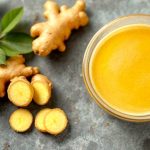Takeaways
- Peppermint contains compounds that may ease allergy symptoms
- It can be used in various forms like oil, tea, and topical applications
- Peppermint may help with respiratory and skin allergies
- Natural option with fewer side effects than some medications
- Should be used carefully and after consulting a healthcare provider
- Can complement other natural remedies for allergies
Understanding Peppermint
Peppermint is a well-known herb, easily identified by its distinct fragrance and cooling sensation.[1] This plant is part of the mint family and is found growing in many areas around the world. For many centuries, people have used peppermint in cooking, for medicinal purposes, and in aromatherapy practices.
Peppermint has a long history of use dating back thousands of years. Ancient Egyptians grew mint, and peppermint leaves have been discovered in pyramids from around 1000 BCE.[2] The Romans and Greeks also valued peppermint for its healing capabilities.[3]
Today, peppermint is a popular ingredient in many common products. You can find it in teas, candies, chewing gum, and essential oils.[4] Its fresh aroma makes it a common element in soaps and cosmetic products. The diverse uses of peppermint have made it a familiar item in homes across the globe.
Peppermint and Allergies: An Overview
Common Allergic Reactions
Allergic reactions happen when the body’s defense system reacts too strongly to substances that are generally harmless.[5] These reactions can range from minor discomfort to serious health issues. Typical signs include sneezing, itching, and a stuffy nose.[6]
Allergies affect the body in a variety of ways. When allergens enter the body, the immune system releases chemicals such as histamine.[7] These chemicals lead to inflammation and the other common signs of allergies.[8]
Common allergy symptoms include:
- Runny or stuffy nose
- Itchy, watery eyes
- Skin rashes or hives
- Coughing and wheezing
- Fatigue
Peppermint’s Role in Allergy Relief
Peppermint may offer some relief for individuals experiencing allergies.[9] Certain natural substances in peppermint have properties that could help with allergy symptoms.[10] Many people choose peppermint as a more gentle option compared to traditional medicines.
Peppermint may ease allergy discomfort in several ways. It has the potential to calm irritated airways and reduce swelling.[11] Some people find that peppermint helps to clear their sinuses, making it easier to breathe.[12]
The Science Behind Peppermint
Active Compounds
Peppermint contains several active compounds that give it its characteristic scent and potential health benefits.[13] Understanding how these substances work can help explain how peppermint affects the body.
| Compound | Properties |
|---|---|
| Menthol | Cooling, analgesic |
| Menthone | Antiseptic, antispasmodic |
| Limonene | Anti-inflammatory |
| Cineole | Expectorant, decongestant |
These compounds interact with the body in various ways. For example, menthol can activate cold-sensitive receptors on the skin and in the mucous membranes. This creates a cooling feeling that many people find comforting.[14]
Mechanism of Action
Peppermint might influence allergic reactions through several processes. Its compounds can help to reduce inflammation and relax muscle tissue.[15] These effects may contribute to the easing of allergy symptoms.
Peppermint interacts with histamine and inflammation in complex ways. Some studies suggest that menthol may reduce certain inflammatory responses.[16] This could explain why some people experience relief from allergy symptoms after using peppermint.
Peppermint Forms and Uses
Peppermint Oil
Peppermint essential oil is a highly concentrated form of peppermint. It contains a high amount of the plant’s active substances.[17] Many people use peppermint oil for its potential health advantages, including relief from allergy symptoms.
To use peppermint oil for allergies, there are several options. Breathing in the scent of the oil may help to open up nasal passages.[18] Some people add a few drops of the oil to a diffuser or to hot water for steam inhalation.
It’s important to use peppermint oil carefully. It is very strong and can cause irritation if not used correctly. Always dilute the oil before applying it to the skin.[19] Avoid swallowing peppermint oil unless a doctor tells you to.[20]
Peppermint Tea
Drinking peppermint tea is a common way to experience its benefits. The warm liquid can soothe a sore throat, and the steam might help clear sinuses.[21] Many find peppermint tea to be refreshing and comforting during allergy season.
To make peppermint tea, steep fresh or dried leaves in hot water for 5 to 10 minutes. You can adjust how strong you make it depending on your taste. Some people add honey to make it even more soothing.
Best practices for drinking peppermint tea include:
- Drink it warm, not scalding hot
- Limit to 2-3 cups per day
- Avoid adding sugar or artificial sweeteners
- Try it iced for a refreshing summer drink
Other Peppermint Products
There are many peppermint products available for allergy relief. These include nasal sprays, lozenges, and balms. Each of these items has specific benefits and uses.
These products can help manage different types of allergy symptoms. A peppermint balm can calm irritated skin.[22] Lozenges could ease a sore throat.[23] Nasal sprays may help to relieve congestion.[24]
Steps to include peppermint in your allergy relief plan:
- Choose a peppermint product that suits your symptoms
- Start with a small amount to test for any reactions
- Use as directed on the product label
- Monitor your symptoms for improvement
- Adjust usage as needed, consulting a healthcare provider if necessary
Peppermint for Specific Allergic Reactions
Respiratory Allergies
Peppermint might help relieve breathing-related allergy symptoms. Its cooling properties can soothe irritated airways.[25] Many people feel that peppermint helps them breathe easier when their allergies are acting up.
For nasal congestion and breathing difficulties, consider trying these methods:
- Inhale steam from peppermint tea
- Use a peppermint-infused nasal spray
- Apply diluted peppermint oil to the chest or under the nose
Always be careful when using peppermint products close to your face. Start with small amounts, and stop using it if you feel any discomfort.[26]
Skin Allergies
Peppermint’s anti-inflammatory properties may be helpful for those with skin allergies.[27] It could help reduce itching and soothe irritated skin. However, peppermint can sometimes cause skin irritation in certain individuals.
To use peppermint safely on your skin, follow these guidelines:
- Dilute peppermint oil with a carrier oil before applying to skin
- Do a patch test on a small area first
- Avoid using on broken or severely irritated skin
| Application Method | Best For | Precautions |
|---|---|---|
| Diluted oil | Localized itching | May cause tingling |
| Peppermint lotion | General skin irritation | Check ingredients for allergens |
| Cool compress with peppermint tea | Hives or rashes | Don’t apply if too cold |
Combining Peppermint with Other Natural Remedies
Peppermint can combine well with other natural allergy remedies. Using different methods together may provide more thorough relief. It is important to be careful when combining different remedies.
Peppermint might make other treatments more effective.[28] For example, using peppermint oil in a neti pot could improve its sinus-clearing ability. Drinking peppermint tea with local honey might provide multiple benefits for those with allergies.
Natural remedies that pair well with peppermint include:
- Eucalyptus
- Lavender
- Chamomile
- Ginger
- Quercetin-rich foods
Potential Side Effects and Precautions
While peppermint is usually safe, some people might experience side effects. Common issues include heartburn, headaches, and allergic reactions.[29] It’s important to know about these possible problems.
Certain people should avoid or limit using peppermint. This includes people with acid reflux or hiatal hernias.[30] Pregnant women and young children should also be careful when using peppermint products.[31]
Always talk to a doctor before using peppermint for allergies. This is especially important if you have existing health issues or take medications. Your doctor can advise you about possible interactions and how to use it safely.
Signs that you should stop using peppermint include:
- Skin rash or hives
- Difficulty breathing
- Increased heartburn
- Headaches
- Dizziness
Peppermint vs. Traditional Allergy Medications
When compared to over-the-counter allergy medicines, peppermint has both pros and cons. Peppermint is natural and might have fewer side effects.[32] However, its effectiveness has not been as thoroughly studied as traditional medications.[33]
Using peppermint as an alternative has both advantages and disadvantages. It is often more affordable and accessible than prescription drugs.[34] However, how well it works can vary from person to person.
| Factor | Peppermint | Traditional Medications |
|---|---|---|
| Side effects | Generally mild | Can be significant |
| Effectiveness | Varies | Well-documented |
| Cost | Often lower | Can be expensive |
| Accessibility | Widely available | May require prescription |
| Onset of action | May be slower | Often rapid |
Growing and Harvesting Peppermint
Growing peppermint at home is relatively straightforward.[35] This plant grows best in partial shade and damp soil. You can grow peppermint in gardens or in pots.
To harvest and store peppermint correctly, follow these tips:
- Pick leaves in the morning after dew has dried
- Rinse leaves gently and pat dry
- Store fresh leaves in the refrigerator for up to a week
- Dry leaves for long-term storage
Steps to grow your own peppermint plant:
- Choose a suitable location with partial shade
- Prepare soil with good drainage
- Plant peppermint seeds or cuttings
- Water regularly, keeping soil moist
- Harvest leaves as needed, pruning to promote growth
FAQ: People Also Ask
Can peppermint worsen allergies in some people?
How quickly does peppermint work for allergy relief?
Is peppermint safe for children with allergies?
Can I use peppermint if I’m pregnant or breastfeeding?
How much peppermint should I use for allergy relief?
Are there any drug interactions with peppermint?
Conclusion
Peppermint has the potential to help with allergy relief. Its natural substances may ease symptoms like congestion and irritation.[42] Many people find peppermint a gentler option than traditional medicines.[43]
Consider using peppermint as a natural way to help with your allergies. Start with small amounts and pay attention to how your body reacts.[44] Remember that natural remedies can have strong effects and should be used thoughtfully.
Adding peppermint to your allergy management plan might offer some relief. However, it should not replace advice from a doctor or prescribed treatments. Work with your healthcare provider to find the best approach for your individual needs.
Peppermint contains menthol, which activates cold-sensitive receptors, creating a cooling sensation. Its aroma is also very recognizable.
Source: “Final report on the safety assessment of Mentha Piperita (Peppermint) Oil, Mentha Piperita (Peppermint) Leaf Extract, Mentha Piperita (Peppermint) Leaf, and Mentha Piperita (Peppermint) Leaf Water” https://pubmed.ncbi.nlm.nih.gov/11766133/
While evidence shows the use of mint by the ancient Egyptians, the species was most likely Mentha spicata and not Mentha piperita. Mentha piperita is believed to be a more recent hybrid of other species of mint. Claims of specific peppermint leaves being found in pyramids is not well supported in the historical or scientific record.
Romans and Greeks used various species of mint for culinary and medicinal uses. While they did utilize mint, ‘peppermint’ as we know it is a later cultivated hybrid, they were likely using other similar species. The use of mint and not specifically peppermint is well documented.
Peppermint oil and extracts are widely used flavoring agents in many commercially available products.
Source: “Final report on the safety assessment of Mentha Piperita (Peppermint) Oil, Mentha Piperita (Peppermint) Leaf Extract, Mentha Piperita (Peppermint) Leaf, and Mentha Piperita (Peppermint) Leaf Water” https://pubmed.ncbi.nlm.nih.gov/11766133/
Allergens trigger an immune response, leading to an inflammatory reaction in the body. This is the fundamental definition of an allergic reaction.
These symptoms are the result of histamine and other chemicals released by the immune system during an allergic reaction.
Histamine triggers inflammation and is a major mediator of allergic reactions.
Inflammation and other allergy symptoms result from the immune system’s response to allergens. Histamine is a key mediator of this response.
Peppermint’s compounds, such as menthol, may have anti-inflammatory and decongestant properties that could provide some symptomatic relief from allergies, however it is not a cure.
Source: “A review of the bioactivity and potential health benefits of peppermint tea (Mentha piperita L.)” https://pubmed.ncbi.nlm.nih.gov/16767798/
Menthol has been shown to have decongestant and anti-inflammatory properties, which could provide symptom relief, but it does not address the underlying allergy.
Source: “1,8-cineole, a TRPM8 agonist, is a novel natural antagonist of human TRPA1” https://pubmed.ncbi.nlm.nih.gov/23192000/
Menthol’s cooling and anti-inflammatory properties might ease breathing difficulties, but its effects on swelling related to allergic reactions require more research.
Source: “1,8-cineole, a TRPM8 agonist, is a novel natural antagonist of human TRPA1” https://pubmed.ncbi.nlm.nih.gov/23192000/
The cooling sensation of menthol may create the perception of cleared sinuses. However, this is not necessarily due to an actual reduction in mucus. Some people find this soothing.
Menthol, menthone, and other compounds give peppermint its scent and various properties including cooling, anti-inflammatory, and decongestant effects.
Source: “Final report on the safety assessment of Mentha Piperita (Peppermint) Oil, Mentha Piperita (Peppermint) Leaf Extract, Mentha Piperita (Peppermint) Leaf, and Mentha Piperita (Peppermint) Leaf Water” https://pubmed.ncbi.nlm.nih.gov/11766133/
Menthol’s interaction with TRPM8 receptors, known for sensing cold, leads to this cooling effect. This effect is often perceived as soothing or calming.
Source: “1,8-cineole, a TRPM8 agonist, is a novel natural antagonist of human TRPA1” https://pubmed.ncbi.nlm.nih.gov/23192000/
Menthol may have anti-inflammatory and muscle relaxant effects, but the evidence is limited and not conclusive, and the specific impact on allergic reactions is still being studied.
Source: “A review of the bioactivity and potential health benefits of peppermint tea (Mentha piperita L.)” https://pubmed.ncbi.nlm.nih.gov/16767798/
Research has shown that menthol may exhibit some anti-inflammatory properties in specific contexts, but more research is needed to understand it’s overall impact on inflammation in the body related to allergic reactions.
Source: “A review of the bioactivity and potential health benefits of peppermint tea (Mentha piperita L.)” https://pubmed.ncbi.nlm.nih.gov/16767798/
Essential oils are extracted from plants, often through distillation, resulting in highly concentrated plant compounds. This is true of peppermint essential oil.
While some people experience a feeling of improved breathing after inhaling peppermint oil, this may be due to menthol’s cooling effect, not necessarily decongestion. More research is needed for confirmation.
Peppermint oil is highly concentrated and can cause skin irritation if applied undiluted. A carrier oil should be used to prevent reactions.
Source: “Final report on the safety assessment of Mentha Piperita (Peppermint) Oil, Mentha Piperita (Peppermint) Leaf Extract, Mentha Piperita (Peppermint) Leaf, and Mentha Piperita (Peppermint) Leaf Water” https://pubmed.ncbi.nlm.nih.gov/11766133/
Peppermint oil is highly concentrated and is not meant for ingestion. It may have side effects if swallowed without proper medical advice.
The warmth of tea can have a soothing effect on throat tissue. Steam inhalation may help with congestion by moistening the nasal passages. More studies need to be done regarding efficacy specifically using peppermint tea.
Menthol’s cooling properties may help with some skin irritation, however some individuals may find it more irritating. More studies need to be done.
Source: “Final report on the safety assessment of Mentha Piperita (Peppermint) Oil, Mentha Piperita (Peppermint) Leaf Extract, Mentha Piperita (Peppermint) Leaf, and Mentha Piperita (Peppermint) Leaf Water” https://pubmed.ncbi.nlm.nih.gov/11766133/
Lozenges can coat and soothe the throat, relieving some discomfort. Whether peppermint lozenges are better than other lozenges needs further study.
Peppermint nasal sprays can provide a cooling sensation in nasal passages, however it’s efficacy as a decongestant needs more study.
The cooling sensation may temporarily ease discomfort. Peppermint’s actual impact on the reduction of inflammation needs more research.
Source: “A review of the bioactivity and potential health benefits of peppermint tea (Mentha piperita L.)” https://pubmed.ncbi.nlm.nih.gov/16767798/
Peppermint can be irritating to the eyes and mucus membranes of the face. It is advisable to start with small amounts and discontinue if discomfort arises.
Some compounds in peppermint, like menthol, may reduce inflammation. However, individual reactions can vary and some people experience irritation, so proceed with caution.
Source: “Final report on the safety assessment of Mentha Piperita (Peppermint) Oil, Mentha Piperita (Peppermint) Leaf Extract, Mentha Piperita (Peppermint) Leaf, and Mentha Piperita (Peppermint) Leaf Water” https://pubmed.ncbi.nlm.nih.gov/11766133/
Combining peppermint with other remedies may potentially amplify their effects, however more research is needed to confirm this.
These side effects are possible when using peppermint products and it is advisable to cease usage if side effects occur.
Source: “Final report on the safety assessment of Mentha Piperita (Peppermint) Oil, Mentha Piperita (Peppermint) Leaf Extract, Mentha Piperita (Peppermint) Leaf, and Mentha Piperita (Peppermint) Leaf Water” https://pubmed.ncbi.nlm.nih.gov/11766133/
Peppermint can relax the lower esophageal sphincter, exacerbating acid reflux and heartburn symptoms. People with these conditions should use peppermint with caution.
Pregnant women should limit peppermint intake because of possible side effects, while young children should not use peppermint oil due to potential irritation, and consultation with a doctor is recommended.
Peppermint is a natural substance and may be preferred by some over conventional medications. However, some people experience side effects with peppermint, including irritation, digestive issues, and possible allergic reactions. Individual reactions vary.
While some research exists, large-scale studies on peppermint’s efficacy for allergies are lacking. More studies are needed.
Peppermint products are usually readily available and more budget-friendly compared to prescription medications.
Peppermint is easy to grow in a garden or a pot, making it readily accessible for home use.
Peppermint can trigger an allergic reaction in certain people. Anyone experiencing adverse symptoms should stop usage and contact a doctor for advice.
Source: “Final report on the safety assessment of Mentha Piperita (Peppermint) Oil, Mentha Piperita (Peppermint) Leaf Extract, Mentha Piperita (Peppermint) Leaf, and Mentha Piperita (Peppermint) Leaf Water” https://pubmed.ncbi.nlm.nih.gov/11766133/
Individual reactions to peppermint differ, so some may experience immediate symptom relief while others may require extended use.
Always consult with a pediatrician before introducing peppermint products to children and use in moderation.
It’s best to consult with a healthcare professional before using peppermint products when pregnant or breastfeeding.
Start with small amounts and gradually increase as required. Follow product instructions or consult a healthcare provider.
Peppermint may interfere with certain medications, so it is important to discuss with a doctor or pharmacist.
Menthol and other compounds in peppermint may ease symptoms, however more research is needed.
Source: “A review of the bioactivity and potential health benefits of peppermint tea (Mentha piperita L.)” https://pubmed.ncbi.nlm.nih.gov/16767798/
Some individuals prefer natural remedies and find peppermint a gentler alternative to traditional medicines. However, its efficacy varies from person to person.
It is advisable to start with a small amount to monitor reactions.



